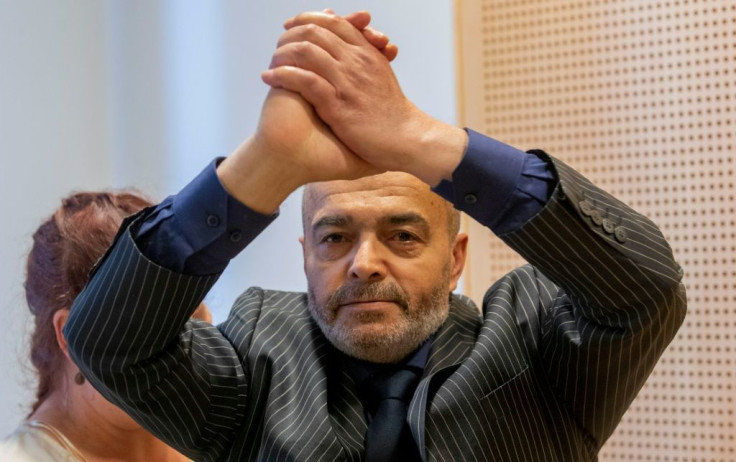Suspect In Deadly 1982 Paris Attack Extradited From Norway
A suspect in a deadly 1982 attack at a Jewish neighbourhood in Paris arrived in France late Friday after being extradited from Norway, airport officials said.
Walid Abdulrahman Abu Zayed, 62, landed at around 8:00 pm (1900 GMT) at Paris' Charles de Gaulle airport from Oslo, where he had been living since 1991.
He is due to appear before an anti-terrorism judge on Saturday, a source close to the case said.
Abu Zayed was arrested in September in the town of Skien southwest of Oslo and Norway approved his extradition on November 27.
The bombing of a Jewish restaurant in the Marais area of the French capital which killed six and injured 22 on August 9 1982 has been attributed to the Abu Nidal Organisation, which splintered from the militant Palestinian Fatah group.
Abu Zayed has denied being involved in the attack in which between three and five men opened fire and threw grenades into the restaurant.
"My husband never killed anyone. He has never been in France," his wife told AFP in 2015 in response to an international arrest warrant issued by France.

Abu Zayed claims he was in Monte Carlo at the time of the attack.
Opposing his extradition, he told Norwegian authorities: "I don't like France. I don't want to go to prison in France."
Abu Zayed is wanted for murder and attempted murder.
French authorities have issued arrest warrants over the attack, against two suspects in Jordan and another believed to be in the West Bank.
In 2019, Jordan refused to extradite one of the suspects because the case was too old, dashing the hopes of victims' families that the perpetrators would finally be brought to justice.
The case has also been the subject of speculation of shady deals between France and the Abu Nidal Organisation.
Lawyers for the bereaved say documents give credence to the idea that French intelligence guaranteed the group it would not face prosecution so long as it did not carry out any more attacks in France.
Former head of the Directorate of Territorial Surveillance (DST) Yves Bonnet admitted during a hearing there was an "unwritten contract" between the two sides, according to Le Parisien newspaper.
© Copyright AFP 2024. All rights reserved.





















